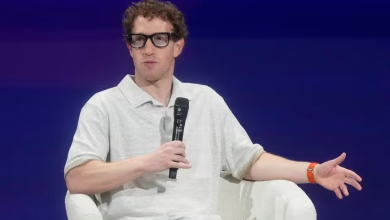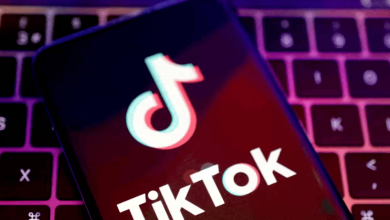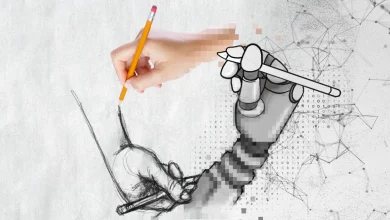FaceAge AI: The Selfie Scanner That Tells You If You’re Ageing Like a Fine Wine or a Soggy Scone
Scientists have developed FaceAge, an AI tool that estimates your biological age from a single photo. The kicker? It could change medical treatment decisions — or just ruin your day

A Face Only Science Could Love: AI Now Tells You If You’re Ageing Like Paul Rudd or a Potato
By the looks of your selfie, you could either be 30 or on borrowed time. Cheers, robot overlords.
In news that sounds like it was spat straight out of a sci-fi dystopia (but with better skincare), scientists at Boston’s Mass General Brigham have cooked up a new tool called FaceAge. It’s an AI system that takes one cheeky selfie and tells you how biologically old you are — which could be very different from the candles on your last birthday cake.
Before you start deleting every blurry late-night photo from your phone, FaceAge isn’t about vanity. It’s about predicting how your body is really coping with ageing, particularly if you’re facing serious health conditions.
FaceAge: The Stats You Didn’t Ask For (But Now Can’t Unsee)
| Feature | Details |
|---|---|
| Tool Name | FaceAge |
| Developed By | Mass General Brigham, Boston |
| Input Needed | Just a single photo of your face (smile optional, wrinkles not) |
| What It Measures | Biological age (vs chronological age) |
| Target Users (so far) | Primarily cancer patients (initial research), broader health to come |
| Data Training Bias | Primarily white faces (awkward) |
| Celebrity Comparison | Paul Rudd at 50: Bio age 43 / Wilford Brimley at 50: Bio age 69 |
| Accuracy Use | Predicting tolerance to aggressive treatments like radiotherapy |
| Unknowns | Effectiveness on people with plastic surgery, people of colour |
| Ethical Warnings | Potential healthcare bias if not properly trained and tested |
Biological Age vs Real Age: Why It Matters
Basically, biological age = how knackered your body is, not how many candles you blew out last year. Someone might be 60 but have the skin and organ function of a 45-year-old gym rat — or vice versa. FaceAge looks at specific indicators like:
- Skin folds near your mouth
- Temple hollowness (yes, apparently that’s a thing)
- Overall facial muscle structure
So no, premature grey hair doesn’t mean you’re ageing faster. But your temples might be telling a different story. Spooky, right?
But What If I’ve Had a Bit of Work Done?
Plastic surgery? Fillers? Botox? FaceAge might struggle a bit. The researchers still aren’t sure how cosmetic enhancements affect its analysis. So for now, that $900 injectable facial “rejuvenation” might confuse the bots.
Also worth flagging: FaceAge was trained mostly on white faces, which means — like many AI systems — it risks being about as inclusive as an inner-city kombucha workshop. Researchers say they’re working to expand its dataset.
The Bright Side… Kinda
In medical contexts, FaceAge could be a gamechanger. It’s already helping doctors assess whether patients are strong enough for aggressive treatment like radiotherapy. Down the track, it could be used in routine checkups to catch age-related decline before symptoms appear.
But like any powerful tech, it walks the line between innovation and “accidentally unleashing Skynet in the GP’s office.”
What the Experts Say (and What You Might Think Instead)
“FaceAge is the new frontier of medical diagnostics.”
→ Translation: Your face might soon be on trial at your next health check.
“It’s not inspired by AI dystopias.”
→ So, just inspired by real life ones?
“We assume others are human so we can connect with them.”
→ Not sure FaceAge agrees with that logic.
Aussie Take: From “Throw Another Shrimp on the Barbie” to “Scan My Face Before I Croak”
Honestly, we’ve had Medicare chaos, a lettuce crisis, and 48-degree summer days in May. What’s one more existential threat in the form of a selfie scanner?
If FaceAge ever becomes part of your next Bupa checkup, don’t be surprised if the GP glances at their screen and says, “Well mate… the computer reckons you’re biologically 87. How’s Tuesday for a will-writing session?”
Final Word
Whether you’re ageing like Paul Rudd or a packet of forgotten ham, FaceAge is one more example of AI slipping into our daily lives — whether we’re ready or not. Just remember: science is great, but maybe check your lighting before uploading that selfie.




